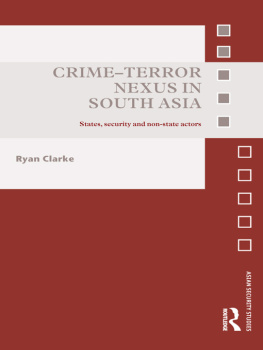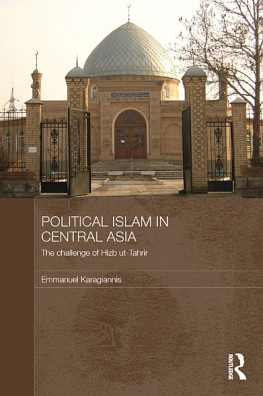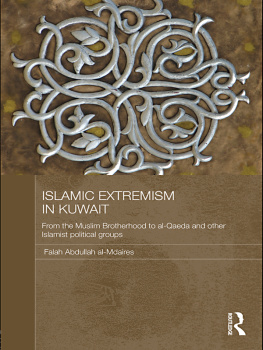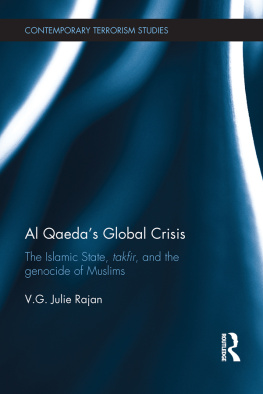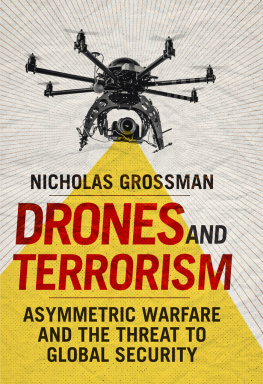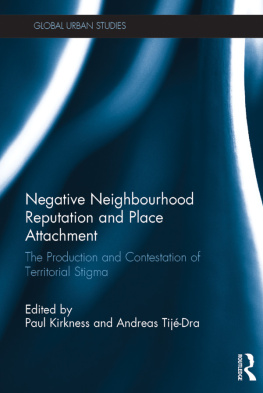Territoriality of Radical Islamist Groups
This book examines the issue of territorial control by violent jihadist groups using a comparative perspective.
The book argues that in many parts of the world the connection between a state and the control over territory is not as close as presented by conventional political maps, and therefore it is necessary to analyze the territoriality of non-state actors as well. Based on a variety of case studies, the work looks at different levels of connection between the violent Islamist groups and territory, dividing them into non-territorial, semi-territorial, and territorial groups. While the majority of the cases are located in the Middle East (Islamic State, Al-Qaeda, Al-Qaeda in the Arabian Peninsula, Hayat Tahrir al-Sham, Hamas, and Hezbollah), the book also draws cases from Africa (groups in the western Sahel, Al-Shabaab, and Boko Haram), South Asia (Taliban), and East Asia (Abu Sayyaf). By providing an in-depth understanding of their respective approaches to territory, the book identifies the specifics of each groups territoriality, while also drawing more general conclusions.
This book will be of much interest to students of terrorism and political violence, radical Islam, Middle Eastern studies, and International Relations in general.
Bohumil Dobo is Assistant Professor at the Faculty of Social Sciences, Charles University, Czech Republic.
Martin Riegl is Assistant Professor at the Faculty of Social Sciences, Charles University, Czech Republic.
Jakub Landovsk is a lawyer, political scientist, and Assistant Professor at the Faculty of Social Sciences, Charles University, Czech Republic.
Political Violence
Series Editor: John G. Horgan
Georgia State University, USA
Founding Editor: David Rapoport
This book series contains sober, thoughtful and authoritative academic accounts of terrorism and political violence. Its aim is to produce a useful taxonomy of terror and violence through comparative and historical analysis in both national and international spheres. Each book discusses origins, organisational dynamics and outcomes of particular forms and expressions of political violence.
Apocalypse, Revolution and Terrorism
From the Sicari to the American Revolt against the Modern World
Jeffrey Kaplan
Understanding Terrorism and Political Violence
The Life Cycle of Birth, Growth, Transformation, and Demise
Dipak K. Gupta
Preventing and Countering Violent Extremism
Designing and Evaluating Evidence-Based Programs
Michael J. Williams
Prosecuting Political Violence
Collaborative Research and Method
Edited by Michael Loadenthal
Terrorism, Democracy and Human Security
A Communication Model
Ronald Crelinsten
Territoriality of Radical Islamist Groups
Security, Economy, and Identity
Bohumil Dobo, Martin Riegl, and Jakub Landovsk
For more information about this series, please visit: www.routledge.com/Political-Violence/book-series/SE0196
Territoriality of Radical Islamist Groups
Security, Economy, and Identity
Bohumil Dobo, Martin Riegl, and Jakub Landovsk
First published 2021
by Routledge
2 Park Square, Milton Park, Abingdon, Oxon OX14 4RN
and by Routledge
52 Vanderbilt Avenue, New York, NY 10017
Routledge is an imprint of the Taylor & Francis Group, an informa business
2021 Bohumil Dobo, Martin Riegl, and Jakub Landovsk
The right of Bohumil Dobo, Martin Riegl, and Jakub Landovsk to be identified as authors of this work has been asserted by them in accordance with sections 77 and 78 of the Copyright, Designs and Patents Act 1988.
All rights reserved. No part of this book may be reprinted or reproduced or utilised in any form or by any electronic, mechanical, or other means, now known or hereafter invented, including photocopying and recording, or in any information storage or retrieval system, without permission in writing from the publishers.
Trademark notice: Product or corporate names may be trademarks or registered trademarks, and are used only for identification and explanation without intent to infringe.
British Library Cataloguing-in-Publication Data
A catalogue record for this book is available from the British Library
Library of Congress Cataloging-in-Publication Data
A catalog record for this book has been requested
ISBN: 978-0-367-74573-8 (hbk)
ISBN: 978-0-367-74575-2 (pbk)
ISBN: 978-1-003-15854-7 (ebk)
Typeset in Times New Roman
by Apex CoVantage, LLC
This book was financed by Charles University Research Development Schemes, programme PROGRES Q18 Social sciences: from multidisciplinary to interdisciplinary.
On 29 June 2014, Abu Bakr al-Baghdadi, the former leader of the Islamic State (who was killed on 26 October 2019 in Idlib province in Syria), speaking inside the Great Mosque of al-Nuri in Mosul, proclaimed refoundation of the Islamic Caliphate a territorial entity that did not exist since the defeat of the Ottoman Empire in the First World War. He, additionally, proclaimed himself as the new Caliph leader of all Muslims. This move presented the world with another shock from this JV Team as infamously called by the former US president Barack Obama. The newly reestablished Islamic Caliphate became the most visible manifestation of the territorial ambitions of different violent Islamist groups around the world and the global jihadist movement in general that attempted to some degree to replicate the idealized original Islamic political community or simply rule over territory in accordance to their rigid interpretation of the Islamic law and Quranic commandments.
The topic of violent jihadism, Islamic insurgency, or any other mutation of the term that appeared in the information space, is one of the most discussed security problems in contemporary political science, in the broadest meaning of the term. There are hundreds, if not thousands, of different publications from short blogs to extensive monographs covering topics connected to the subject, coupled with an increasing number of case studies dedicated to varying actors inside this stream. The aim of this book is to provide an additional perspective on the issue. The point of view taken in the following work is based on the territorial understanding of the political processes that lie in the heart of political geography and geopolitics as a specific brand of political science. Led by the work of authors from Soja, Gottmann, and Sack to Paasi, Elden, and Vollaard, this book tries to clarify the relationship of violent non-state actors connected to the radical and violent promotion of the political Islam to territory.




